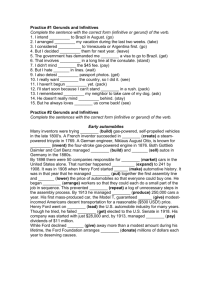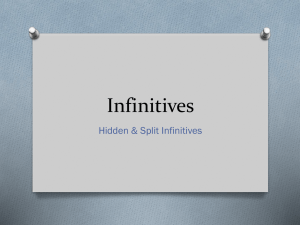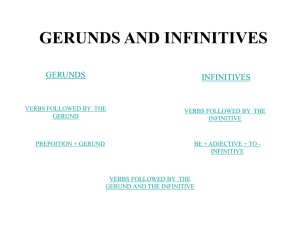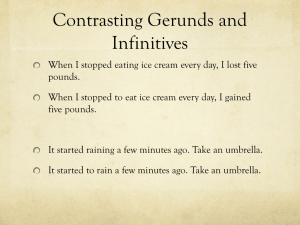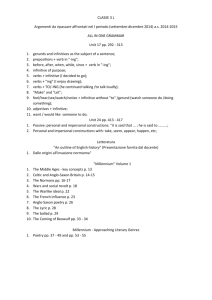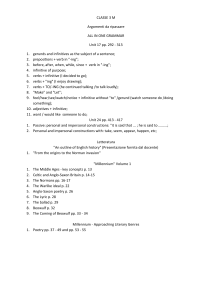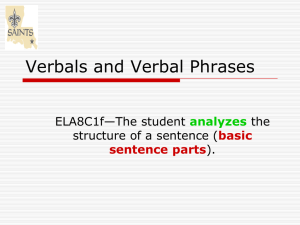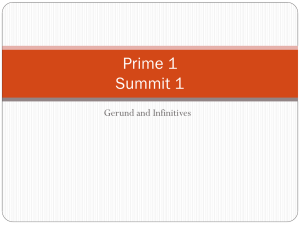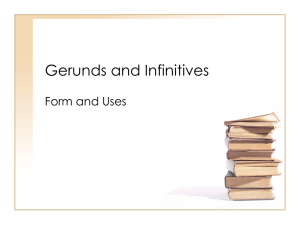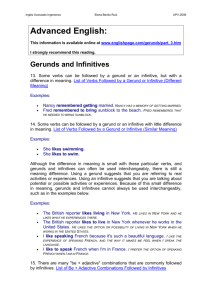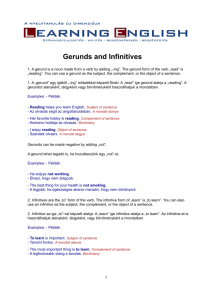Gerunds and infinitives – examples and analysis
advertisement
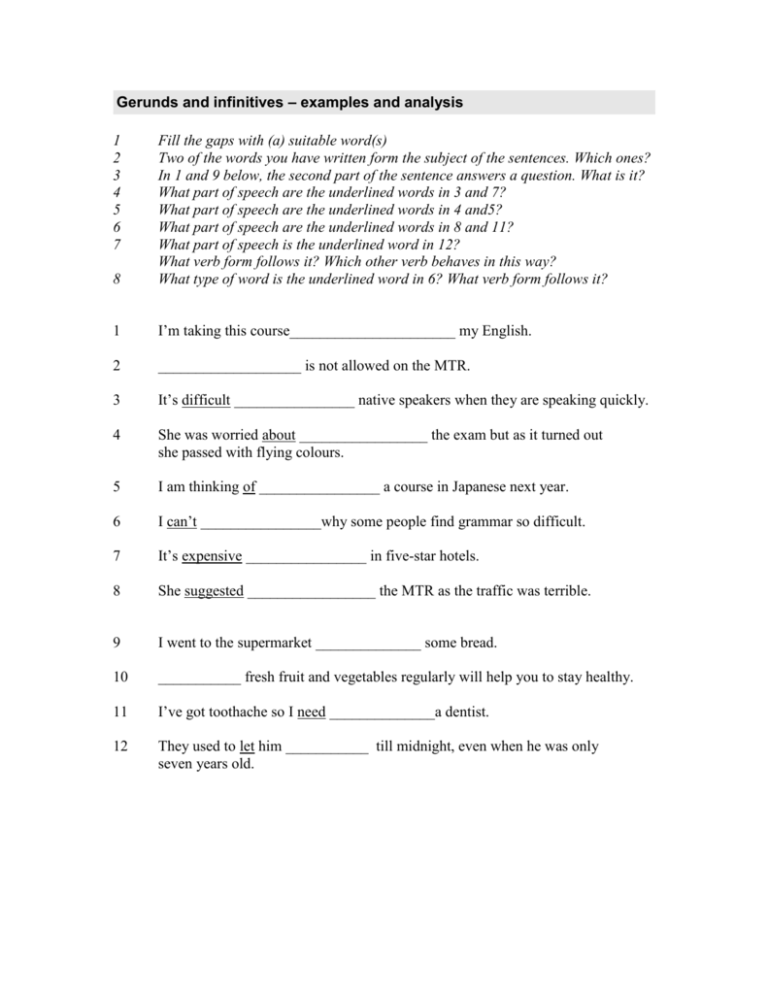
Gerunds and infinitives – examples and analysis 1 2 3 4 5 6 7 8 Fill the gaps with (a) suitable word(s) Two of the words you have written form the subject of the sentences. Which ones? In 1 and 9 below, the second part of the sentence answers a question. What is it? What part of speech are the underlined words in 3 and 7? What part of speech are the underlined words in 4 and5? What part of speech are the underlined words in 8 and 11? What part of speech is the underlined word in 12? What verb form follows it? Which other verb behaves in this way? What type of word is the underlined word in 6? What verb form follows it? 1 I’m taking this course______________________ my English. 2 ___________________ is not allowed on the MTR. 3 It’s difficult ________________ native speakers when they are speaking quickly. 4 She was worried about _________________ the exam but as it turned out she passed with flying colours. 5 I am thinking of ________________ a course in Japanese next year. 6 I can’t ________________why some people find grammar so difficult. 7 It’s expensive ________________ in five-star hotels. 8 She suggested _________________ the MTR as the traffic was terrible. 9 I went to the supermarket ______________ some bread. 10 ___________ fresh fruit and vegetables regularly will help you to stay healthy. 11 I’ve got toothache so I need ______________a dentist. 12 They used to let him ___________ till midnight, even when he was only seven years old. Common patterns Choose the best answer When a verb is the subject of a sentence, it is usually a gerund / full infinitive / bare infinitive. We often express a reason for doing something with a gerund / full infinitive / bare infinitive. Prepositions are often followed by gerunds / full infinitives / bare infinitives. Adjectives are often followed by gerunds / full infinitives / bare infinitives. Modal auxiliary verbs are followed by a gerund / full infinitive / bare infinitive. The verbs 'make' and 'let' are followed by a gerund / full infinitive / bare infinitive. When there are two verbs in a sentence, the second verb _______________________ . [scroll down for answers] Sentences - possible answers 1 I’m taking this course to improve my English. 2 Smoking is not allowed on the MTR. 3 It’s difficult to understand native speakers when they are speaking quickly. 4 She was worried about failing the exam but as it turned out she passed with flying colours. 5 I am thinking of taking a course in Japanese next year. 6 I can’t understand why some people find grammar so difficult. 7 It’s expensive to stay in five-star hotels. 8 She suggested taking the MTR as the traffic was terrible. 9 I went to the supermarket to get some bread. 10 Eating fresh fruit and vegetables regularly will help you to stay healthy. 11 I’ve got toothache so I need to see a dentist. 12 They used to let him stay up till midnight, even when he was only seven years old. Common patterns - answers When a verb is the subject of a sentence, it is usually a gerund We often express a reason for doing something with a full infinitive. Prepositions are often followed by gerunds Adjectives are often followed by full infinitives Modal auxiliary verbs are followed by a bare infinitive. The verbs 'make' and 'let' are followed by a bare infinitive. When there are two verbs in a sentence, the second verb is sometimes an gerund and sometimes an infinitive .
